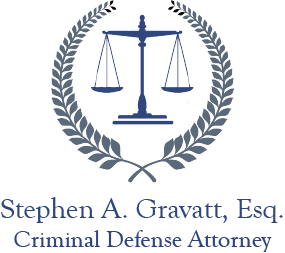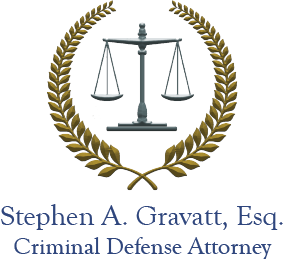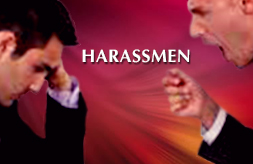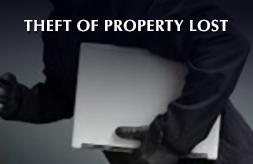
Stephen A. Gravatt, Esq.
Attorney
565 NJ 35
Middletown, New Jersey 07748
(732)-337-7922
Email: pipking@comcast.net
Criminal Defense Attorney defends charges for Hindering Apprehension or Prosecution.
WHAT CONDUCT CONSTITUTES HINDERING APPREHENSION OR PROSECUTION?
HINDERING THE APPREHENSION OF ANOTHER
a. A person commits an offense if, with purpose to hinder the detention, apprehension, investigation, prosecution, conviction or punishment of another for an offense, or violation of Title 39 of the New Jersey Statutes or a violation of chapter 33A of Title 17 of the Revised Statutes he:
(1) Harbors or conceals the other;
(2) Provides, or aids in providing a weapon, money, transportation, disguise or other means of avoiding discovery or apprehension or effecting escape;
(3) Suppresses, by way of concealment or destruction, any evidence of the crime, or tampers with a witness, informant, document or other source of information, regardless of its admissibility in evidence, which might aid in the discovery or apprehension of such person or in the lodging of a charge against him;
(4) Warns the other of impending discovery or apprehension, except that this paragraph does not apply to a warning given in connection with an effort to bring another into compliance with law;
(5) Prevents or obstructs, by means of force, intimidation or deception, anyone from performing an act which might aid in the discovery or apprehension of such person or in the lodging of a charge against him;
(6) Aids such person to protect or expeditiously profit from an advantage derived from such crime;
(7) Gives false information to a law enforcement officer or a civil State investigator assigned to the Office of the Insurance Fraud Investigator established by section 32 of P.L. 1998, c. 21 (C.17:33A-16).
The offense is a crime of the third degree if the conduct which the actor knows has been charged or is liable to be charged against the person aided would constitute a crime of the second degree or greater, unless the actor is a spouse, parent or child of the person aided, in which case the offense is a crime of the fourth degree. The offense is a crime of the fourth degree if such crime would constitute a crime of the third degree. Otherwise it is a disorderly persons offense.
HINDERING ONE’S OWN APPREHENSION
b. A person commits an offense if, with purpose to hinder his own detention, apprehension, investigation, prosecution, conviction or punishment for an offense or violation of Title 39of the New Jersey Statutes or a violation of chapter 33A of Title 17 of the Revised Statutes, he:
(1) Suppresses, by way of concealment or destruction, any evidence of the crime or tampers with a document or other source of information, regardless of its admissibility in evidence, which might aid in his discovery or apprehension or in the lodging of a charge against him; or
(2) Prevents or obstructs by means of force or intimidation any one from performing an act which might aid in his discovery or apprehension or in the lodging of a charge against him; or
(3) Prevents or obstructs by means of force, intimidation or deception any witness or informant from providing testimony or information, regardless of its admissibility, which might aid in his discovery or apprehension or in the lodging of a charge against him; or
(4) Gives false information to a law enforcement officer or civil State investigator assigned to the Office of the Insurance Fraud Prosecutor established by section 32 of P.L. 1998, c. 21 (C.17:33A-16).
The offense is a crime of the third degree if the conduct which the actor knows has been charged or is liable to be charged against him would constitute a crime of the second degree or greater. The offense is a crime of the fourth degree if such conduct would constitute a crime of the third degree. Otherwise it is a disorderly persons offense.
Giving false information to a law enforcement officer with design to hinder one’s own apprehension (or to hinder the apprehension of another) is a serious offense. State v. Valentin, 105 N.J. 14, 519 A.2d 322 (1987)
WHAT IS MY EXPOSURE (PENALTY) IF CONVICTED?
A conviction for hindering apprehension can expose you to large fines, the imposition of jail time and a criminal record. If charged as a third degree offense your exposure could be a monetary fine of up to $15,000.00 plus possible jail time of a minimum of three (3) years and a maximum of five (5) years, presumptive four (4) years, plus a criminal record. If charged as a fourth degree crime your exposure could be a monetary fine of up to $10,000.00 plus possible jail time of a minimum of 12 months and a maximum of 18 months plus a criminal record. If charged as a disorderly persons offense your eposure could be a monetary fine of up to $1,000.00 plus possible jail time up to 180 days plus a criminal record.
DO I NEED TO RETAIN AN ATTORNEY TO DEFEND ME FOR HINDERING APPREHENSION?
Yes. I would recommend it. Money is fungible. A criminal record is not. A criminal record can preclude your eligibility to secure employment as a school teacher and with the government. If you are already employed by government you could be required to forfeit your position. You could be precluded from obtaining professional license to practice by professional boards.
In my 30 years as a criminal defense attorney I have helped many clients avoid conviction, jail time, maximum fines, for hindering apprehension.
If you have been charged contact me today for your free initial consultation and a no nonsense discussion about how I can help you.
Stephen A. Gravatt, Esq.
(732)-337-7922
www.njdwicriminaldefenseattorney.com




